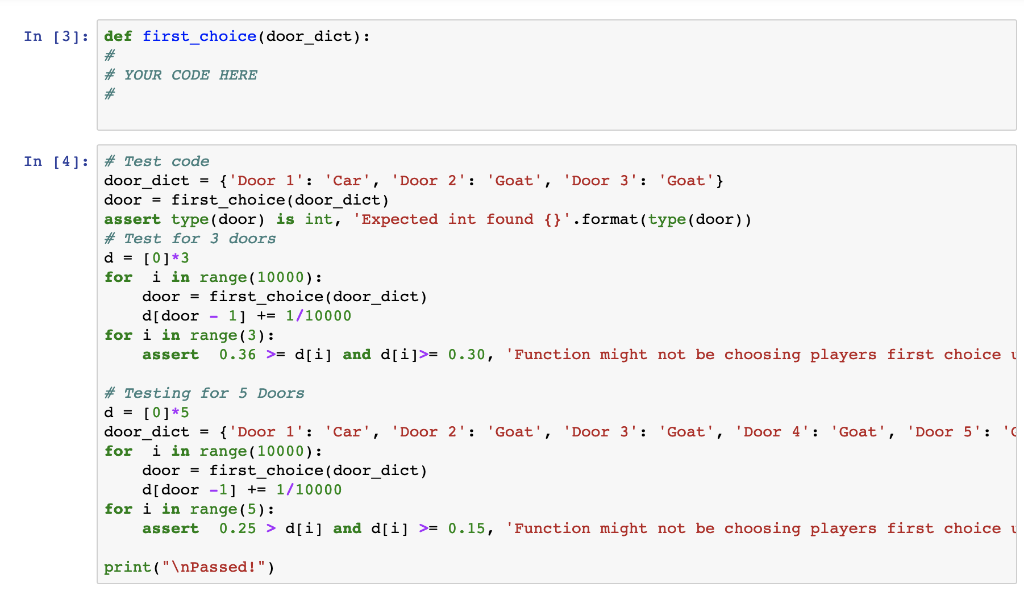Answered step by step
Verified Expert Solution
Question
1 Approved Answer
Exercise 1 (1 point) Complete the function first_choice() which has 1 input argument: door_dict: A dictionary representing every numbered door and what that door is


Step by Step Solution
There are 3 Steps involved in it
Step: 1

Get Instant Access to Expert-Tailored Solutions
See step-by-step solutions with expert insights and AI powered tools for academic success
Step: 2

Step: 3

Ace Your Homework with AI
Get the answers you need in no time with our AI-driven, step-by-step assistance
Get Started


